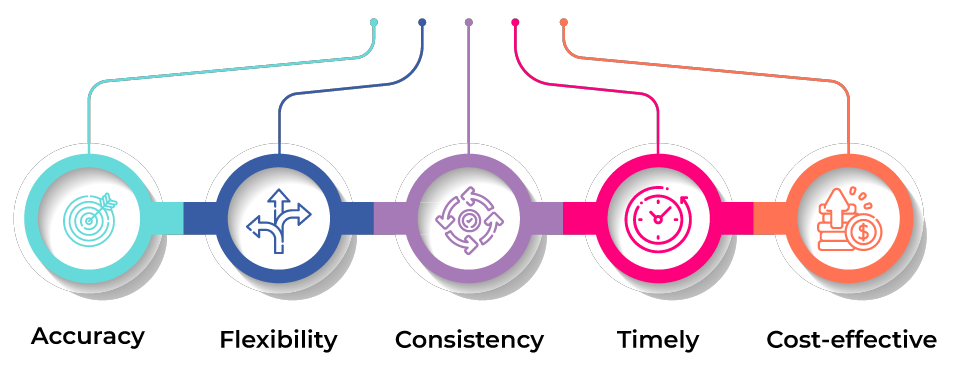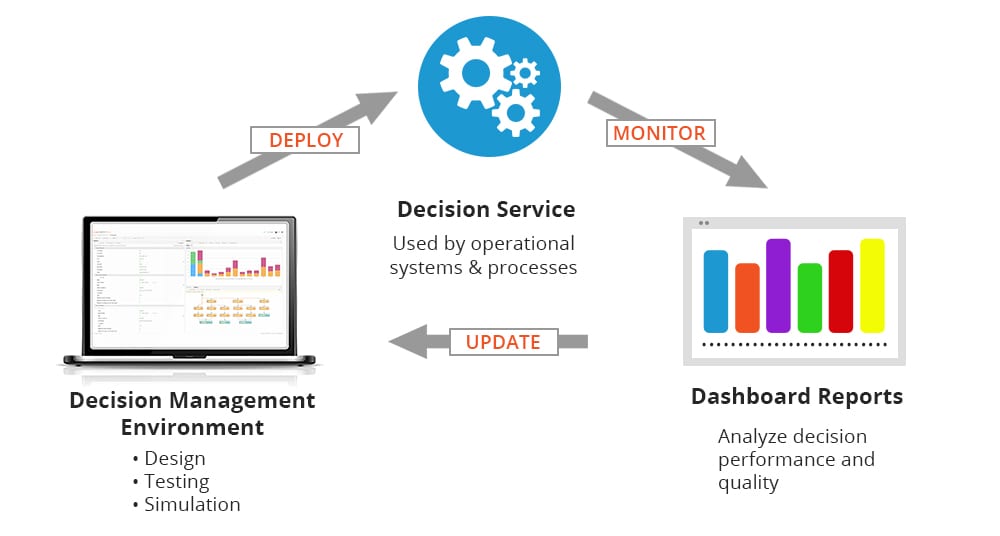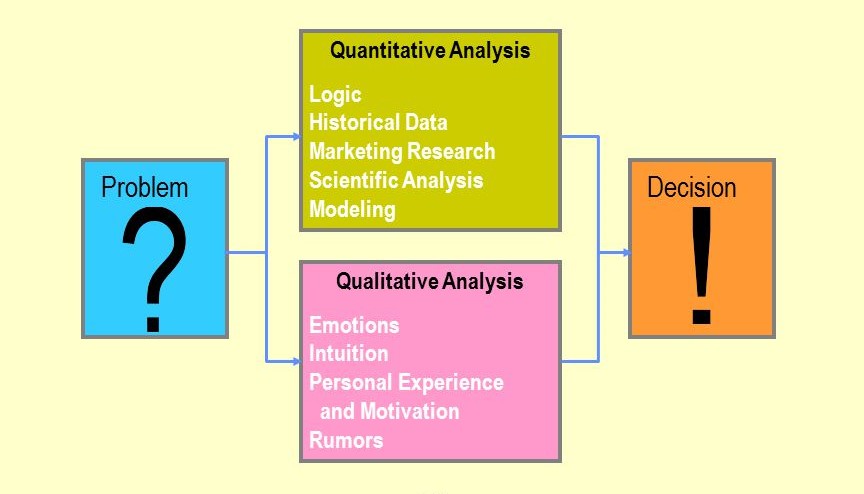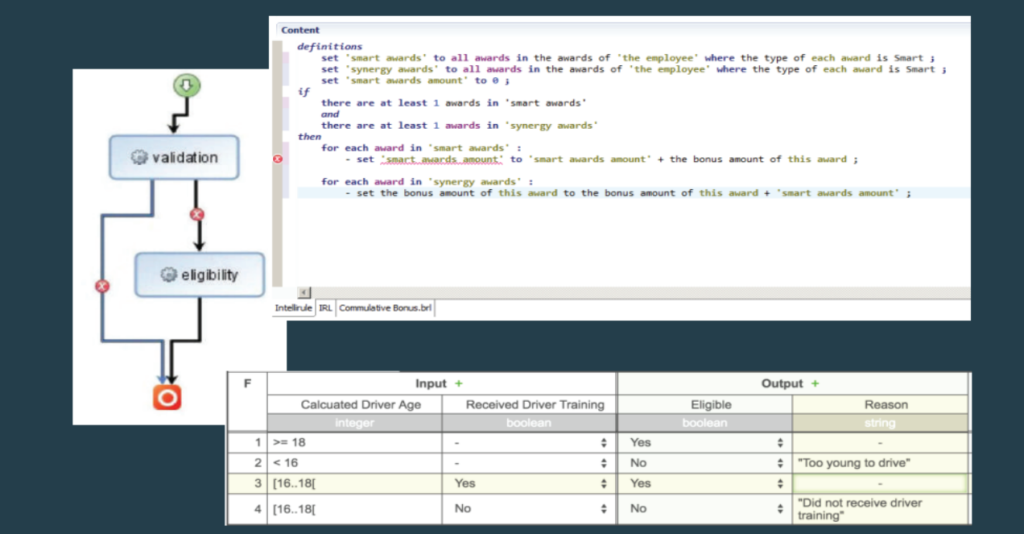Operational Decision Management

Operational Decision Manager combines decision making and change detection tools to provide a business rule management system that is easy to evolve, trace, audit, and test.
Operational Decision Manager includes two main components, both components are available on distributed and z/OS® platforms:
Decision Server for managing decisions and detecting events:
Decision Server provides the runtime and development components to automate the response of highly variable decisions based on the specific context of a process, transaction, or interaction. You can monitor a business network to discover and take action on event-based data patterns, and then process this information against hundreds or even thousands of business rules in order to determine how to respond within front-end and back-end systems.


Decision Center for putting decision management in the hands of those who drive the business:
With Decision Center, business users can manage decisions and events directly based on organizational knowledge and best practices, with limited dependence on the IT department. The degree of dependence can range from a limited review by business users of the business logic implemented by developers, to complete control over the specification, creation, testing, and deployment of the business logic by business users. Business and IT functions can work in collaboration, aligning the entire organization in the implementation of automated decisions and accelerating the maintenance lifecycle as they evolve based on new external and internal requirements.
Why use decision management?
Business events and Business Rule Management Systems (BRMS) are highly complementary technologies that in combination enable intelligent and responsive decision automation. These technologies enable organizations to flexibly build solutions that can detect and react to data patterns as they occur within a specified time period, and then provide the appropriate automated decision response to transactional and process-oriented business systems.
The combination of business events and business rules increases business agility and decision automation capabilities to achieve consistently better business outcomes and maximize resources and value. A decision management solution enables businesses to reuse sources of insight:
- Historical data
- Predictive knowledge
- Simulation and events
Operational Decision Manager enables business users to manage decisions and make changes in a very short timeframe, increasing enterprise responsiveness to unforeseen events, as well as shortening response times as a result of higher levels of automation.
Why use decision management in z/OS applications
The extraction of business decisions from COBOL applications and moving them into a decision management system offers several advantages:
- More effective application development and maintenance with less business risk.
You can apply the benefits of decision management incrementally into your CICS®, IMS™, and batch COBOL applications to reduce the business risk.
- Reduction of duplicated functionality.
Duplicated functionality causes a company to spend more time and more resources than needed maintaining applications.
- Sharing decisions across applications and platforms.
If your enterprise has previous knowledge and investment with Business Rule Management Systems (BRMS) and WebSphere® Business Events it can start application modernization projects to assess how existing business rule and business event applications can address the need to respond more rapidly to emerging opportunities on z/OS.
To manage agile solution delivery, it is essential to be able to understand line of business applications in terms of the business rules they implement and the effect of rule changes on key business processes. Operational Decision Manager provides the framework to develop business applications so that business policy makers can create, update, and maintain the business decisions.
The combination of business events and business rules increases business agility and decision automation capabilities to achieve consistently better business outcomes and maximize resources and value. A decision management solution enables businesses to reuse sources of insight:
- Historical data
- Predictive knowledge
- Simulation and events
Operational Decision Manager enables business users to manage decisions and make changes in a very short timeframe, increasing enterprise responsiveness to unforeseen events, as well as shortening response times as a result of higher levels of automation.

• Centralized policy management in the organization, easily queried by other systems.
• Organize business rules architecture to ensure smooth operations
• Highly interoperable with IBM BPM and other IBM products.
• Flexible policy changes, highly adaptable to organizational changes and market
changes.
• Create a competitive advantage in product pricing across different customer
segments through flexible business rules.
